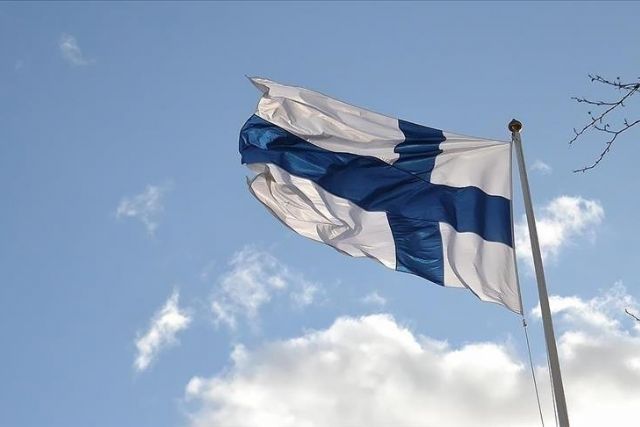Moscow summons Moldovan envoy to protest Russian journalist’s expulsion
Russian Foreign Ministry spokeswoman Zakharova strongly opposes Vitaly Denisov's deportation from Chisinau, accusing Moldova of 'cleansing information space.'

MOSCOW
Russia on Wednesday summoned Moldova's charge d'affaires in Moscow to protest the expulsion of a Russian journalist from the country, describing the Chisinau step as an attack on the media.
Moldovan charge d'affaires Sergiu Goncharenko was summoned to the Foreign Ministry over the deportation of Vitaly Denisov, the chief correspondent of the Sputnik news agency, from Chisinau, spokeswoman for the ministry Maria Zakharova said at a news conference on the sidelines of the 2023 Eastern Economic Forum in the port city of Vladivostok.
According to the spokeswoman, Denisov's expulsion is “part of the cleansing of the information space” of the republic and an “example of the inadequate attitude of the Moldovan authorities toward the concept of democracy.”
"They don't understand what freedom of speech is, what journalists' rights and freedom are," Zakharova alleged, adding that the process of "cleansing the information space" has been ongoing for a long ago and is "aimed at the destruction of Moldova's sovereignty" in order to give its territory to Romania.
"This is called the destruction, the annihilation of the sovereignty of Moldova. To do this, it is necessary to... strike at the media, which could provide an unbiased assessment and form a picture... simply by broadcasting what is happening.
"Why the regime of (Moldovan President Maya) Sandu needs the loss of Moldova's statehood is understandable, given that she is a Romanian citizen, and we know the history of the region well," according to her.
Relations between Russia and Moldova, a former republic of the Soviet Union, have deteriorated since 2003 and have completely degraded since pro-Western Maya Sandu was elected president in 2020.
Following the dissolution of the Soviet Union, several armed conflicts erupted in its former territories, including one between Moldova and Transnistria, which evolved into a war in 1992.
The war was ended by the direct intervention of the Russian army, which resulted in the emergence of the internationally unrecognized Republic of Transnistria.
In 2003, Russia proposed a solution to the Transnistria conflict, which the Moldovan authorities refused to accept, causing a further deterioration in bilateral relations.
Moldova has reduced its participation in Commonwealth of Independent States (CIS) meetings and activities and has suspended its work in CIS key bodies since Sandy came to power.
Moreover, Russia's decision to launch its "special military operation" in Ukraine was also condemned by the Sandu government. Both countries expelled each other's diplomats in recent years.





